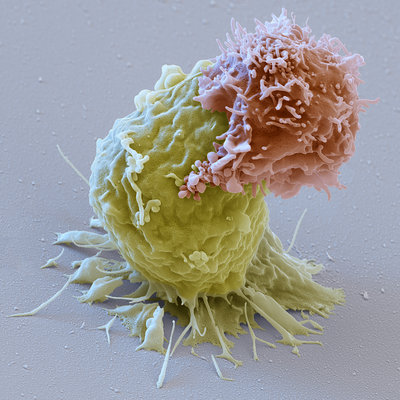For kidney patients, dialysis is an effective way of preserving life; but transplantation of the kidney is the optimal choice. Now, with immunosuppressive medications, less than 20% of kidney transplant patients realize rejection. The rejection of the new kidneys by the patients decreased dramatically around 1995; and the discovery of new anti-rejection drugs stopped around 2005. Without the immunosuppressive drugs , the kidney transplant patients might otherwise be hypertensive, diabetic, and have high cholesterol. The immune system protects the body against infections; and surveils the body to fight off cancer cells. When patients take the immunosuppressive drugs, they acquire infections that they normally wouldn’t suffer from. The patients also experience an increased development of cancer. Additionally, some of the drugs are toxic to the kidney. The goal is to create tolerance. The physicians want to re-train the immune system to regard transplanted organ as “self”; while leaving the remainder of the immune system intact.
Patients receive multiple medications ; so no one drug is prescribed at it’s maximal level, which would produce side-effects. The maintainence of the medication by the kidney transplant patients after the the surgery is completed is crucial. One of the immunosuppressive drugs taken by the kidney transplant patient is a corticosteroid. Corticosteroids are anti-inflammatory drugs used in immunosuppression. Corticosteroids act at the level of the lymphocytes. Two other drugs, taken by kidney transplant patients, cyclosporine and tacrolimus (which are calcineurin inhibitors) block the signals that lymphocytes produce that cause them to move together. Therefore, these two drugs down-regulate the immune system. KIdney transplant patients also take antimetabolites and antiproliferatives which stop the lymphocyte DNA from dividing. And, finally the kidney transplant patient also takes mTOR Inhibitors (Sirolimus and Everolimus) which inhibit the lymphocytes from multiplying. A balance by the kidney transplant patients must be reached between avoiding rejection of the new kidney; while still maintaining enough of their immune system to avoid infection and the development of particular forms of cancer.














































